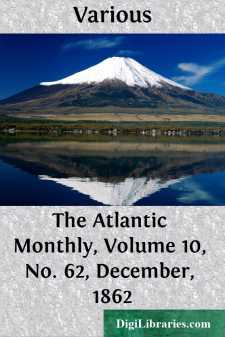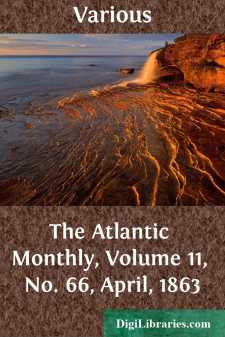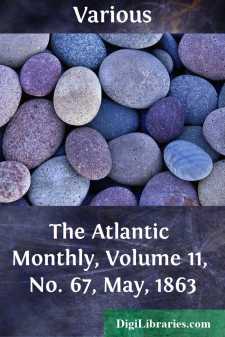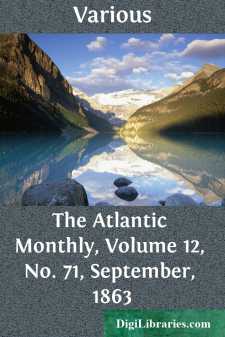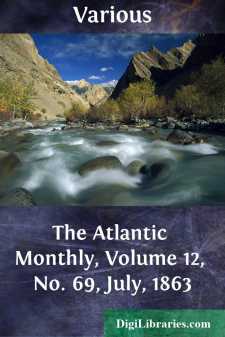Categories
- Antiques & Collectibles 13
- Architecture 36
- Art 48
- Bibles 22
- Biography & Autobiography 813
- Body, Mind & Spirit 142
- Business & Economics 28
- Children's Books 14
- Children's Fiction 11
- Computers 4
- Cooking 94
- Crafts & Hobbies 4
- Drama 346
- Education 46
- Family & Relationships 57
- Fiction 11829
- Games 19
- Gardening 17
- Health & Fitness 34
- History 1377
- House & Home 1
- Humor 147
- Juvenile Fiction 1873
- Juvenile Nonfiction 202
- Language Arts & Disciplines 88
- Law 16
- Literary Collections 686
- Literary Criticism 179
- Mathematics 13
- Medical 41
- Music 40
- Nature 179
- Non-Classifiable 1768
- Performing Arts 7
- Periodicals 1453
- Philosophy 64
- Photography 2
- Poetry 896
- Political Science 203
- Psychology 42
- Reference 154
- Religion 513
- Science 126
- Self-Help 84
- Social Science 81
- Sports & Recreation 34
- Study Aids 3
- Technology & Engineering 59
- Transportation 23
- Travel 463
- True Crime 29
Sort by:
by:
Various
THE PROCESSION OF THE FLOWERS. In Cuba there is a blossoming shrub whose multitudinous crimson flowers are so seductive to the humming-birds that they hover all day around it, buried in its blossoms until petal and wing seem one. At first upright, the gorgeous bells droop downward, and fall unwithered to the ground, and are thence called by the Creoles "Cupid's Tears." Frederika Bremer...
more...
by:
Various
HAPPIEST DAYS. Long ago, when you were a little boy or a little girl,—perhaps not so very long ago, either,—were you never interrupted in your play by being called in to have your face washed, your hair combed, and your soiled apron exchanged for a clean one, preparatory to an introduction to Mrs. Smith, or Dr. Jones, or Aunt Judkins, your mother's early friend? And after being ushered in to...
more...
by:
Various
CHRISTOPHER NORTH. Plutarch, when about to enter upon the crowded lives of Alexander and Caesar, declares his purpose and sets forth the true nature and province of biography in these words:—"It must be borne in mind that my design is not to write histories, but lives. And the most glorious exploits do not always furnish us with the clearest discoveries of virtue or vice in men. Sometimes a...
more...
by:
Various
ON THE VICISSITUDES OF KEATS'S FAME. [Joseph Severn, the author of the following paper, scarcely needs introduction to the readers of the "Atlantic Monthly"; but no one will object to reperusing, in connection with his valuable contribution, this extract from the Preface to "Adonais," which Shelley wrote in 1821:— "He [Keats] was accompanied to Rome and attended in his last...
more...
by:
Various
I. What Southey says of Cottle's shop is true of the little bookstore in a certain old town of New England, which I used to frequent years ago, and where I got my first peep into Chaucer, and Spenser, and Fuller, and Sir Thomas Browne, and other renowned old authors, from whom I now derive so much pleasure and solacement. 'Twas a place where sundry lovers of good books used to meet and...
more...
by:
Various
THE PURITAN MINISTER. It is nine o'clock upon a summer Sunday morning, in the year sixteen hundred and something. The sun looks down brightly on a little forest settlement, around whose expanding fields the great American wilderness recedes each day, withdrawing its bears and wolves and Indians into an ever remoter distance,—not yet so far but that a stout wooden gate at each end of the village...
more...
by:
Various
DOINGS OF THE SUNBEAM. Few of those who seek a photographer's establishment to have their portraits taken know at all into what a vast branch of commerce this business of sun-picturing has grown. We took occasion lately to visit one of the principal establishments in the country, that of Messrs. E. & H.T. Anthony, in Broadway, New York. We had made the acquaintance of these gentlemen through...
more...
by:
Various
SOVEREIGNS AND SONS. The sudden death of Prince Albert caused profound regret, and the Royal Family of Britain had the sincere sympathies of the civilized world on that sad occasion. The Prince Consort was a man of brilliant talents, and those talents he had cultivated with true German thoroughness. His knowledge was extensive, various, and accurate. There was no affectation in his regard for...
more...
by:
Various
CHARLES LAMB'S UNCOLLECTED WRITINGS. SECOND PAPER. Readers of Lamb's "Life and Letters" remember that before "Mr. H." was written, before Kemble had rejected "John Woodvil," Godwin's tragedy of "Antonio" had been produced at Drury-Lane Theatre, and that Elia was present at the performance thereof. But perhaps they do not know (at least, not many of them)...
more...
by:
Various
GENIUS. When Paul Morphy plays seven games of chess at once and blindfold, when young Colburn gives impromptu solution to a mathematical problem involving fifty-six figures, we are struck with hopeless wonder: such power is separated by the very extent of it from our mental operations. But when we further observe that these feats are attended by little or no fatigue,—that this is the play, not the...
more...


